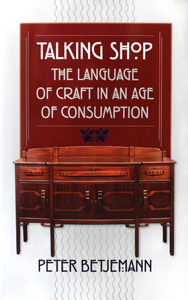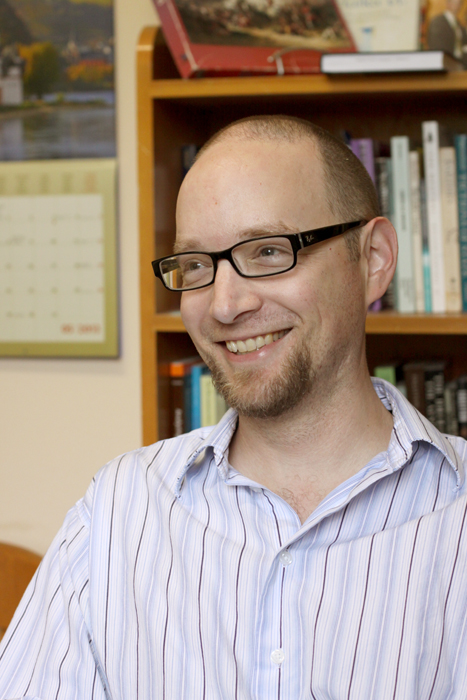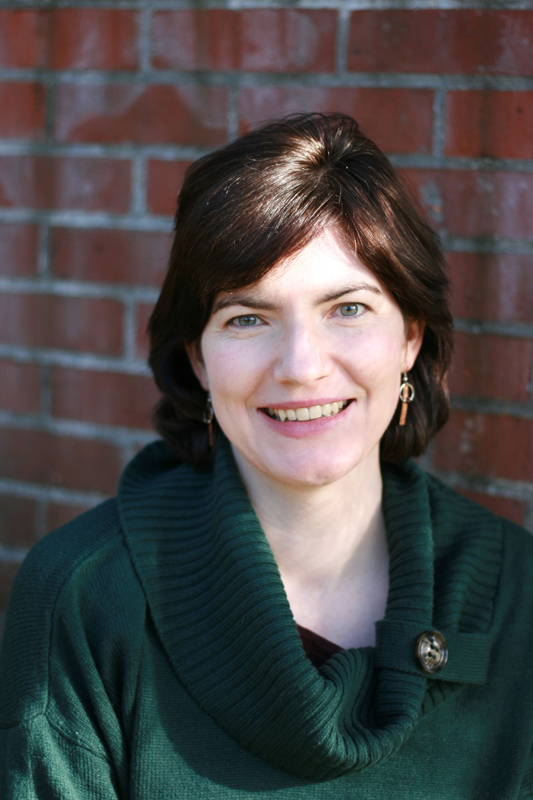The CLA websites are currently under construction and may not reflect the most current information until the Fall Term.
As members of a Carnegie-Recognized (R1) Institution, members of the MA faculty produce cutting-edge scholarship in their respective subfields, publishing at venues such as Cambridge UP, University of Michigan Press, Stanford UP, Cornell UP, Ohio State UP, University of Delaware Press, University of Virginia Press, Duke UP, University of Edinburgh Press, NYU Press, Routledge, Palgrave, Bucknell UP and WW Norton.
The faculty has also been awarded a number of international and national prizes and fellowships including the Morton W. Bloomfield Fellowship (Harvard University), a National Endowment for the Humanities Research Grant (Digital Livingstone Project), a Fulbright Guest Professorship (University of Heidelberg), an Institute for Advanced Studies in the Humanities Fellowship (University of Edinburgh), and a UC Humanities Research Initiative Fellowship (UC Irvine).
Surabhi Balachander
Assistant Professor of English (Beginning Fall 2024)
Surabhi's research and teaching interests bridge comparative ethnic studies and the environmental humanities in 20th and 21st century American literature. Her current book project seeks to define rural identity in American literature from 1920-2020, the U.S.'s first century as a majority-urban nation, and shows that rural America, in contrast to popular stereotypes, is best understood as multiethnic and cosmopolitan. Other interests include the relationship of Asian Americans to settler colonialism, racial allyship and accountability, and the American West and Midwest. Her work appears in ISLE: Interdisciplinary Studies in Literature and Environment and Western American Literature.

Peter Betjemann
Executive Director of Arts and Education
Associate Professor of English
Peter Betjemann teaches the literature of the United States from its origins to the present, while specializing as a researcher in the period between 1789 and 1900. His current project, Revolutionary Readers: Early American Narrative Painters and the Radicalization of Literature, argues that the more than 100 extant antebellum paintings of particular literary scenes together constitute a body of highly sophisticated literary criticism. In many cases, the interpretive insights of these works (including, for instance, George Loring Brown’s Leatherstocking Kills the Panther and Robert S. Duncanson’s Uncle Tom and Little Eva) pushed the boundaries of what was meant by “America” and “American literature” in ways that print critics have only recently begun to draw out in the writing of Irving, Cooper, Bryant, Longfellow, Hawthorne, and Stowe. Returning to these often-neglected paintings, and understanding them as a corpus, helps us locate the earliest readings of “American” literature as fundamentally hemispheric; as deeply engaged with multiracial identity; and as founded on an understanding of cultural boundaries as far more fluid than characterizations of the “early national” period suggest.
Betjemann’s first book, Talking Shop: The Language of Craft in an Age of Consumption (University of Virginia Press, 2011), originated in his work as a cabinetmaker’s assistant during his years as a student. It studies the lexicons of the “artisanal” – today a familiar way of talking about everything from cheeses and coffee to mass-marketed decorative styles – as they developed in the nineteenth century. Even as his current interests tend towards art history and visual culture, he continues to publish on issues of literature, craft, and design in such journals as Word and Image, American Literary Realism, and The Journal of Design History.

Visiting Assistant Professor of English
Olga Blomgren teaches 20th and 21st century literatures in the School of Writing, Literature and Film. She focuses her research on questions of mobilities, citizenship, language, and power posed by diasporic authors and artists. She is interested in the ways multilingual, diasporic, and transregional authors and artists destabilize existing categories – such as those of discipline and nation – and through their work continue to question post-imperial geographies as well as the concept of a homogenous global English. Her current project explores the intersections between archipelagic poetics, literary studies, translation studies, and mobilities research.

Tekla Bude
Associate Professor
Tekla Bude specializes in medieval literature. Her research focuses on the ways medieval writers were influenced by and influenced the study of music, arithmetic, geometry, and astronomy -- what medieval scholars would have called the quadrivium and what we might think of as the study of numbers. Her first book, Sonic Bodies: Text, Music, and Silence in Late Medieval England (University of Pennsylvania, 2022), investigates forms of "silent" or "metaphysical" music in literature from 1300-1550. Tekla received her PhD from the University of Pennsylvania in 2013. From 2013-2016, she was Kathleen Hughes Junior Research Fellow at Newnham College, Cambridge, where she began work on a second project on the conceptualization of mathematical principles in medieval poetry, theology, and devotional texts. Her work has also appeared in journals such as The Chaucer Review and the Yearbook of Langland Studies.

Neil Davison
Professor of English
A member of the Department since 1995, Neil Davison teaches courses in British Modernist Literature, works of James Joyce, 19th-and 20th-century Irish literature, Jewish cultural studies, 20th–century poetry, and Holocaust literature and film. In his classroom and scholarship, he focuses on Enlightenment Modernity, constructs of racial, gender, and religious identities, and how modernism informs the aesthetics and politics of nineteenth and twentieth-century texts. His work has also been influenced by Postcolonial theory, Masculinity Studies, and the philosophy of Emmanuel Levinas. He has a special interest in teaching the works of Joyce, Conrad, Shaw, Crane, Wilde, Virginia Woolf, Auden, Hemingway, Robert Lowell, V.S. Naipaul, Philip Larkin, and the Holocaust writings of Primo Levi, Aharon Appelfeld, and André Schwarz-Bart. He has published on Joyce, George Moore, Flann O’Brien, George du Maurier, W.B. Yeats, J. M. Synge, Schwarz-Bart, Philip Roth and others in such journals as Journal of Modern Literature, James Joyce Quarterly, Clio, Literature and Psychology, Jewish Social Studies, and Textual Practice. He has also placed poetry in Ironwood, Small Pond, Cimarron Review, Abraxas, West Branch, and other small-press magazines. His monograph, James Joyce, Ulysses, and the Construction of Jewish Identity: Culture, Biography, and “the Jew” in Modernist Europe (Cambridge University Press, 1996; paper edition 1998), examines Joyce’s career-long interest in European Jewry and 19th-century forms of anti-Semitism. Another monograph, Jewishness and Masculinity from the Modern to the Postmodern was published by the Routledge Studies in 20th-Century Literature series in 2010. He is presently at work on a critical biography of André and Simone Schwarz-Bart that focuses on race and gender in the collaborative expression of their Jewish and Afro-Caribbean identities.


Evan Gottlieb
Professor of English
Evan Gottlieb specializes in British literature of the eighteenth century and Romantic period (1740-1830), as well as literary/ critical theory. He is the author of five books: Engagements with Contemporary Literary and Critical Theory (Routledge, 2020), Romantic Realities: Speculative Realism and British Romanticism (Edinburgh University Press, 2016), Romantic Globalism (Ohio State UP, 2014), Walter Scott and Contemporary Theory (Bloomsbury, 2013), and Feeling British (Bucknell UP, 2007). He has also edited three collections of essays, most recently Global Romanticism (Bucknell UP, 2015), as well as the new Norton Critical Edition of The Expedition of Humphry Clinker by Tobias Smollett (Norton, 2015). He is currently working on a monograph on the fate of utopian thinking in literature and theory. Gottlieb serves on the editorial boards of Eighteenth-Century Fiction and Studies in the Novel, and has written for the Huffington Post and Public Books.

Director of the School of Writing, Literature and Film
Associate Professor of English
Tim Jensen directs the School of Writing, Literature and Film and teaches courses in composition, rhetoric, and pedagogy. His teaching aims at generating what the Greeks called phronesis—practical wisdom for everyday living—by challenging students to apply personal interests and real exigencies to their work. His book Ecologies of Guilt in Environmental Rhetorics reexamines rhetoric's approach to pathē, the passions of persuasion. Working with contemporary rhetorical theory, social movement studies and critical affect/emotion studies, the project advances the concept of the common sensorium, an affective and emotional analogue to common sense. Recent work appears in The Megarhetorics of Global Development, Global Academe: Engaging Intellectual Discourse, and The Journal of Aesthetics and Protest. Dr. Jensen is also co-creator and currently serves on the editorial board of Harlot: A Revealing Look at the Arts of Persuasion, a peer-review digital journal dedicated to advancing rhetorical literacy in and outside of the academy. He hopes to one day grow up on a farm.

Jon Lewis
Distinguished Professor of English and Film
Jon Lewis is a Distinguished Professor of Film Studies and a University Honors College Eminent Professor in the School of Writing, Literature, and Film at Oregon State University where he has taught film and cultural studies since 1983. He has published twelve books: The Road to Romance and Ruin: Teen Films and Youth Culture, which won a Choice Magazine Academic Book of the Year Award; Whom God Wishes to Destroy … Francis Coppola and the New Hollywood; The New American Cinema; Hollywood v. Hard Core: How the Struggle over Censorship Saved the Modern Film Industry, a New York Times New and Noteworthy paperback; The End of Cinema as We Know It: American Film in the Nineties, American Film: A History, Looking Past the Screen: Case Studies in American Film History, for the British Film Institute’s Film Classics series, The Godfather; the popular textbook Essential Cinema, The American Film History Reader, Producing (for Rutgers’ University Press’ Silver Screen series), and Hard-Boiled Hollywood: Crime and Punishment in Postwar Los Angeles. He has just completed editing Behind the Silver Screen, a ten book series for Rutgers University Press on the history of selected film occupations (screenwriter, director, actor, producer, cinematographer, art director, sound engineer, animator, editor, and costume designer).
Professor Lewis has appeared in two theatrically released documentaries on film censorship: Inside Deep Throat (Fenton Bailey, 2005) and This Film is Not Yet Rated (Kirby Dick, 2006). Between 2002 and 2007, Professor Lewis was editor of Cinema Journal and had a seat on the Executive Council of the Society for Cinema and Media Studies.


Raymond Malewitz
Associate Professor of English
Interim Director, Master of Arts in English
Raymond Malewitz teaches literature and science, environmental literature, and American literature of the 20th and 21st centuries. His book The Practice of Misuse (Stanford UP) examines the ways that real and imagined “maker” communities—environmental advocates, shade-tree engineers, post-apocalyptic survivalists, and so on—express their political and ethical commitments through the repurposing of everyday commodities. His current book project is a cultural history of animal disease. His essays on topics such as climate change literature, animal studies, DNA art, and material culture have been published in journals such as PMLA, Critical Inquiry, Contemporary Literature, Modern Fiction Studies, Configurations, and Callaloo. He holds a Ph.D. from the University of Virginia in English Literature (2007) and a B.S. in English Literature and Biochemistry from the University of Michigan.

Rebecca Olson
Associate Professor of English
Rebecca Olson, an Oregon native, teaches courses on early modern poetry and drama (c. 1400-1700). Her ongoing research interests include the relationship between literature and the visual arts; early modern textiles and their use in performance spaces; and feminist approaches to the history of the book. She is the author of Arras Hanging: The Textile That Determined Early Modern Literature and Drama (The University of Delaware Press, 2013), which reveals the significance of Renaissance tapestries in the work of Shakespeare, Spenser, and other early modern writers, and is currently overseeing the creation of a student-edited online textbook edition of Romeo and Juliet for Open Oregon State. Her work has been published by or is forthcoming in journals including Word & Image, Modern Philology, Pedagogy, and PMLA.

Sarah Tinker Perrault joined Oregon State University as associate professor of rhetoric and writing, and director of the Writing Intensive Curriculum program, in fall of 2020.
Before coming to OSU, Sarah was a faculty member the University of California-Davis for 11 years. She has a BA in Anthropology from Reed College (1991), and MFA in nonfiction writing from Northern Michigan University (2004), and a PhD in rhetoric and composition from the University of Nevada-Reno (2009).
Sarah does research on science writing, writing pedagogy, and writing across the curriculum. Her book, Communicating Popular Science: From Deficit to Democracy, was published by Palgrave Macmillan in 2013, and she is now working on a book about rhetorical approaches to teaching science writing. Her articles have appeared in journals including the Journal on Excellence in College Teaching, Composition Studies, Information Design Journal, The American Journal of Bioethics, and Perspectives in Biology and Medicine, and she has chapters in Renewing Rhetoric’s Relations to Composition: Essays in Honor of Theresa Jarnagin Enos and in Public Interest Design Education Guidebook: Curricula, Strategies, and SEED Academic Case Studies.
Ehren Pflugfelder
Associate Professor of English
Ehren (Purdue University, 2012) teaches courses in professional/technical writing, science writing, new media studies, and rhetoric and composition. He is the author of Communicating Mobility and Technology: A Material Rhetoric for Transportation (New York: Routledge, 2016), which was named the 2018 CCCC Best Book in Technical or Scientific Communication. He has published essays on such subjects as multimedia instruction manuals, big data, transportation technology, and user feedback in journals including College English, Technical Communication, Technical Communication Quarterly, Kairos, Journal of Technical Writing and Communication, Communication Design Quarterly, Rhetoric Society Quarterly, Transfers, and the collections Posthuman Praxis in Technical Communication, Rhetoric and Experience Architecture, and Thinking with Bruno Latour in Rhetoric and Composition. He is also a Managing Editor for Present Tense: A Journal of Rhetoric in Society.

Ana Milena Ribero
Assistant Professor
Ana Milena Ribero researches and teaches about migrant rhetorics and feminist critique. Her scholarship and teaching are situated at the intersections of transnational feminisms, migrant rhetorics, border rhetorics, and the rhetorics of social movements. Her current book project complicates citizenship as constituted by the DREAMers—the undocumented young activists who initially mobilized in support of the DREAM Act. This project explores how, through what Ribero terms “DREAMer rhetorics,” migrant activism can reinforce neoliberal narratives about nation, home, and citizenship that contribute to the invisibilization of racialized, gendered, and sexualized subjectivities, even as such rhetorics attempt to challenge anti-migrant discourses, policies, and practices. Her work can be found in Rhetoric Review, Present Tense: A Journal of Rhetoric in Society, Decolonizing Rhetoric and Composition Studies, and in the forthcoming anthology The Routledge Companion to Digital Writing and Rhetoric. She is a 2017-18 research fellow with OSU’s Center for the Humanities.
Megan Ward
Associate Professor of English
Megan Ward works in the fields of Victorian literature and culture and digital humanities, with interests in realism, narrative theory, material culture, and the history of technology. Her book, Seeming Human: Victorian Realist Character and Artificial Intelligence (Ohio State UP, 2018), argues that the emergence of artificial intelligence in the twentieth century constitutes a theory of fictional character's life-likeness. Using this newly-discovered body of theory, we can re-evaluate the emphasis on interiority that has dominated studies of Victorian realist character to find new modes of seeming human.
Her essays on realism and technology have appeared in journals such Genre, Studies in English Literature 1500-1900, and Configurations. She is also Co-Director of Livingstone Online, an NEH-funded digital archive of the Victorian explorer David Livingstone. She holds an M.A. and Ph.D. from Rutgers University, an M.Phil. from Oxford University, and B.A. from Lawrence University.